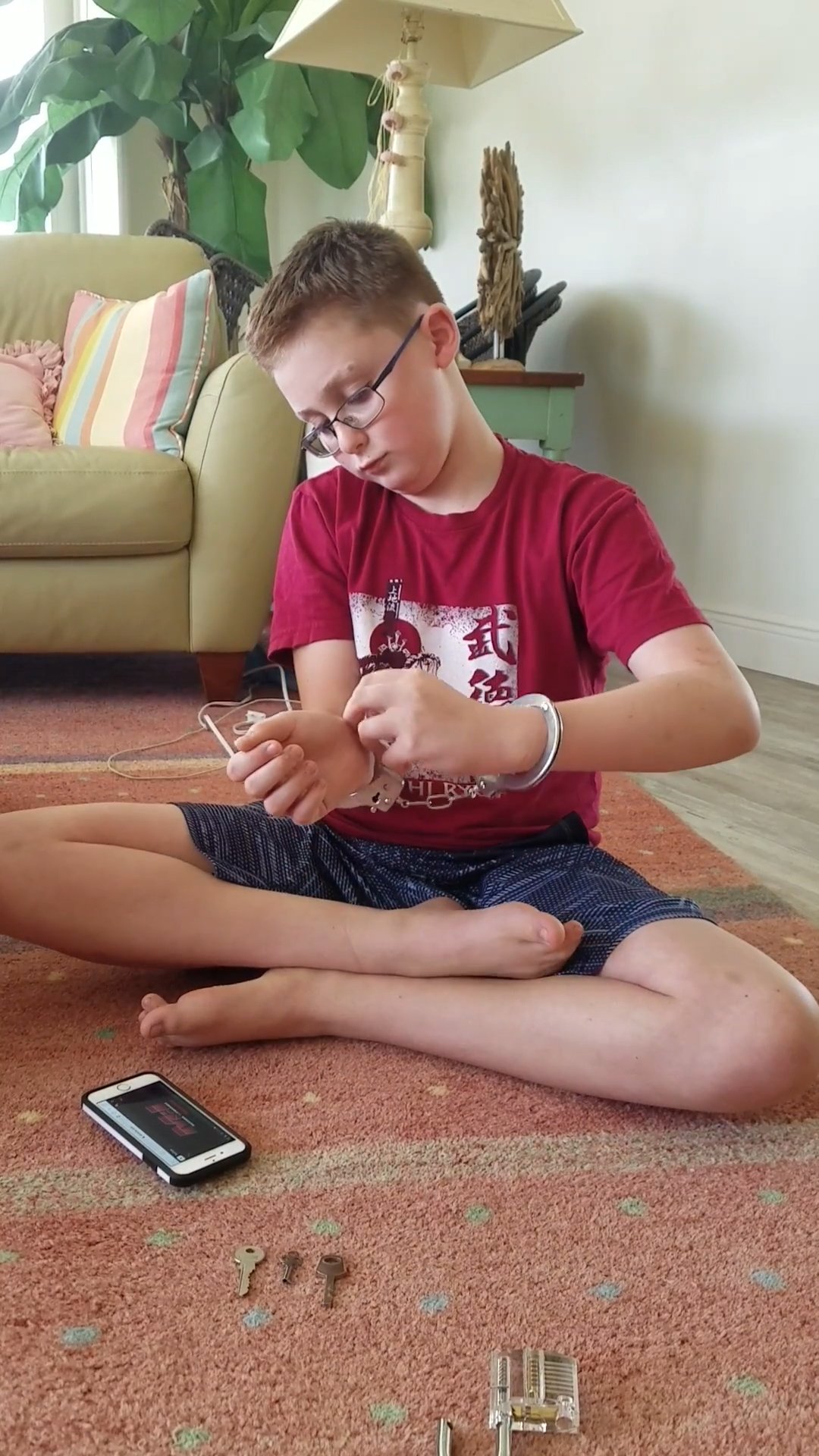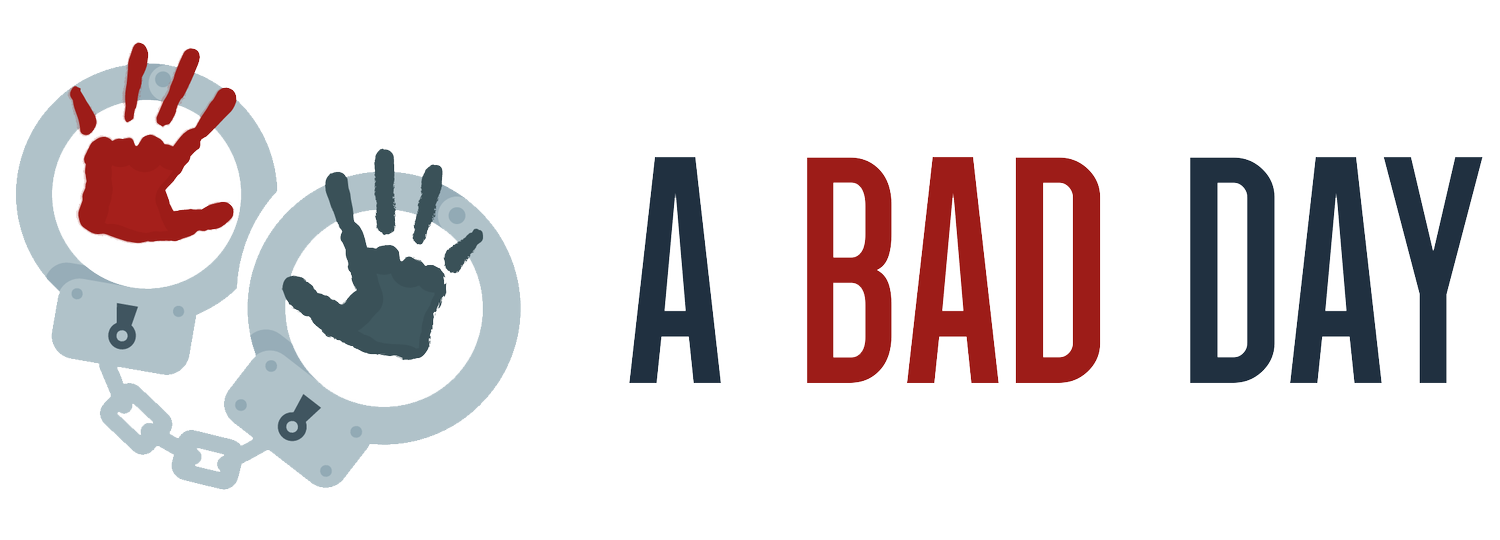
A BAD DAY
A Documentary film by Kimberley Spireoh
I don't think that we can ever assume that an autistic person is not struggling because we do not see them struggling. The pressure to mask, the desire to please ("fawning"), the discomfort with being seen as different or being the center of attention... All these can make struggles difficult to notice.
Yulika Forman. PhD. IMHC
www.theexpertally.com
LOGLINE
After the Parkland school shooting, laws were passed to identify school shooters. But what happens when innocent students are targeted? This documentary follows autistic student Mac, who classmates tricked into saying he had a “hit list.” Weeks later, a SWAT team appears at Mac’s house, and Mac faces permanent expulsion.
SYNOPSIS
A BAD DAY is a documentary film about how well-intentioned educational policies can harm the very people they are supposed to protect. It also shows how incorrect perceptions of autism, fear, and discrimination can have dangerous repercussions. Actions or statements made by a student–even if lacking any ill intent–are often treated as lethal threats without full investigation, allowing one bad day to irrevocably change the child’s life.
In the wake of the Parkland school shooting in 2018, Florida’s legislature enacted a series of school safety laws aimed at preventing another tragedy. Frequently, schools eliminated risks by pushing “problematic” students out the door rather than providing them with needed services that could prevent negative outcomes. This approach has primarily affected the most vulnerable and marginalized populations, including students with disabilities. The number of innocent students arrested, held in extended prone restraints, subjected to 72-hour involuntary psychiatric holds, expelled, or even removed from school without due process increased at alarming rates.
The film is an intimate examination of what this “othering” looks and feels like, as well as its traumatic aftermath. It also explores the larger political ramifications and moral conflicts of perceived safety vs. an innocent disabled child’s trauma that is seen as acceptable collateral damage. A BAD DAY is a personal story of one young man, but it represents the stories of thousands more.
Mac, a gifted student and musician, attended a prestigious magnet arts school in South Florida. He performed well academically, but his autism, anxiety, and social deficits made it difficult for him to develop friendships. His parents fought to get Mac appropriate supports for his autism starting in fifth grade, only to be rebuffed and watch him face repeated punitive actions that compounded his struggles. Mac shares how these actions affected him.
The story culminates in one fateful day, when classmates manipulated Mac to say he had a “hit list”, believing their assurances that it was all a joke. Weeks later, a SWAT team appeared at Mac’s house to arrest him, and the school district sought his permanent removal from public school.
The film will feature animation reflecting the emotions and impressions felt by Mac and his family as they describe the traumatic events that forever changed their lives. What is unique for this project is that instead of directly showing what happened, the animation will represent the family’s sensory impressions, emotions, and reflections.
Through the film, we seek to elicit empathy for and understanding of Mac and his family, allowing audiences to imagine how they would feel in that situation.
The film intersperses clips of experts explaining the relationship between the events impacting Mac and the laws adopted in the name of school safety; the actual psychological and behavioral effects the policies have on children and families; the stress and conflict imposed on educators charged with implementing laws that discount their professional training and personal knowledge of their students; and the long-term outcomes for the children caught up in the laws.
DIRECTOR
A BAD DAY is a documentary film about how well-intentioned educational policies can harm the very people they are supposed to protect. It also shows how incorrect perceptions of autism, fear, and discrimination can have dangerous repercussions. Actions or statements made by a student–even if lacking any ill intent–are often treated as lethal threats without full investigation, allowing one bad day to irrevocably change the child’s life.
In the wake of the Parkland school shooting in 2018, Florida’s legislature enacted a series of school safety laws aimed at preventing another tragedy. Frequently, schools eliminated risks by pushing “problematic” students out the door rather than providing them with needed services that could prevent negative outcomes. This approach has primarily affected the most vulnerable and marginalized populations, including students with disabilities. The number of innocent students arrested, held in extended prone restraints, subjected to 72-hour involuntary psychiatric holds, expelled, or even removed from school without due process increased at alarming rates.
The film is an intimate examination of what this “othering” looks and feels like, as well as its traumatic aftermath. It also explores the larger political ramifications and moral conflicts of perceived safety vs. an innocent disabled child’s trauma that is seen as acceptable collateral damage. A BAD DAY is a personal story of one young man, but it represents the stories of thousands more.
Mac, a gifted student and musician, attended a prestigious magnet arts school in South Florida. He performed well academically, but his autism, anxiety, and social deficits made it difficult for him to develop friendships. His parents fought to get Mac appropriate supports for his autism starting in fifth grade, only to be rebuffed and watch him face repeated punitive actions that compounded his struggles. Mac shares how these actions affected him.
The story culminates in one fateful day, when classmates manipulated Mac to say he had a “hit list”, believing their assurances that it was all a joke. Weeks later, a SWAT team appeared at Mac’s house to arrest him, and the school district sought his permanent removal from public school.
The film will feature animation reflecting the emotions and impressions felt by Mac and his family as they describe the traumatic events that forever changed their lives. What is unique for this project is that instead of directly showing what happened, the animation will represent the family’s sensory impressions, emotions, and reflections.
Through the film, we seek to elicit empathy for and understanding of Mac and his family, allowing audiences to imagine how they would feel in that situation.
The film intersperses clips of experts explaining the relationship between the events impacting Mac and the laws adopted in the name of school safety; the actual psychological and behavioral effects the policies have on children and families; the stress and conflict imposed on educators charged with implementing laws that discount their professional training and personal knowledge of their students; and the long-term outcomes for the children caught up in the laws.
OUR GOALS:
Raise awareness of the consequences of school safety laws that label and demonize students, especially those with disabilities;
Promote use of proven violence-prevention strategies rather than funneling funding toward armed police/guardians in schools; and
Encourage the utilization of research-based methods of preventing school shootings, which cause less harm and truly avert violence.
This would interest individuals and groups directly affected by school safety laws, including students, families, and educators; law enforcement; everyone touched by school violence, and policymakers in Florida and nationally.

“WHAT YOU NEED TO KNOW”
2X
Students of color and students with disabilities are nationally two times more likely to be referred to police and arrested in schools than other students.
28.7%
In 2017-18, Black students accounted for 28.7 percent of all students referred to law enforcement and 31.6 percent of all students arrested at school or during a school-related activity - twice their share of total student enrollment of 15.1 percent.
55%
In 2017-18, 55 percent percent of high school students attended school with police presence, while. only 40 percent of high school students attended school with school social worker.
-ACLU





